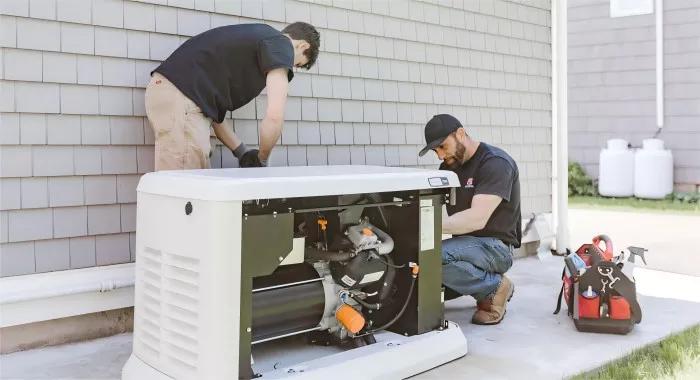Reducing diesel consumption in diesel generators is crucial for both economic efficiency and environmental sustainability. Efficient fuel use not only cuts operational costs but also minimizes the environmental impact and extends the lifespan of the equipment. This guide provides actionable strategies to reduce diesel consumption in diesel generators, ensuring optimal performance and sustainability.
1. Optimize Generator Sizing and Load Management
1.1 Proper Sizing of the Generator
Selecting the correct size for your generator is essential to reducing diesel consumption. A generator that is either too large or too small for your power needs will operate inefficiently, leading to increased fuel consumption.
Assess Your Power Requirements:
Conduct a thorough assessment of your power needs. Ensure that the generator you choose matches your load requirements to operate efficiently. Avoid oversizing, which can lead to fuel wastage, as well as undersizing, which can cause the generator to work harder than necessary.
Regular Load Monitoring:
Regularly monitor and evaluate your load requirements. Adjust the generator size if there are significant changes in your power demands. Ensuring that the generator operates close to its full capacity can lead to more efficient fuel usage.
1.2 Implement Load Management Techniques
Effective load management techniques help in reducing fuel consumption by optimizing how power is used.
Load Shedding:
Use load shedding to reduce the load on the generator during peak demand periods. Temporarily disconnect non-essential loads to lower the generator’s load and reduce fuel consumption. Prioritizing essential services ensures that critical systems remain operational while saving fuel.
Automatic Load Controllers:
Install automatic load controllers to adjust the load on the generator in real-time. These controllers help balance the load and optimize fuel use by minimizing unnecessary power consumption.
2. Maintain and Service the Generator Regularly
2.1 Routine Maintenance
Regular maintenance is key to ensuring that your generator operates efficiently and consumes less diesel. Follow the manufacturer’s recommended maintenance schedule.
Engine Maintenance:
Perform routine engine maintenance, including oil changes, filter replacements, and air filter cleaning. A well-maintained engine runs more efficiently and consumes less fuel. Address any signs of wear or damage promptly to avoid fuel wastage.
Fuel System Maintenance:
Inspect and maintain the fuel system regularly. Clean or replace fuel filters, check for leaks, and ensure that fuel lines are clear. A clean and well-maintained fuel system ensures efficient fuel delivery and reduces consumption.
2.2 Monitoring and Diagnostics
Utilize monitoring and diagnostic tools to identify and address issues that could lead to increased fuel consumption.
Performance Monitoring:
Install performance monitoring systems to track fuel consumption and operational efficiency. Regularly review performance data to identify any inefficiencies or anomalies that could be affecting fuel use.
Diagnostic Tools:
Use diagnostic tools to detect and resolve performance issues such as engine misfires or fuel inefficiencies. Early detection and correction of problems can prevent increased fuel consumption and extend the life of the generator.
see also: What Size Diesel Generator Would You Need to Run a House?
3. Improve Operational Practices for Fuel Efficiency
3.1 Optimize Engine Speed and Load
Operating the generator at its optimal engine speed and load settings can significantly reduce fuel consumption.
Engine Speed:
Adjust the engine speed to match the load requirements. Operating the engine at the recommended speed ensures it runs efficiently and uses fuel effectively. Avoid running the generator at excessively high or low speeds, as this can lead to increased fuel consumption.
Load Management:
Maintain a steady load on the generator to avoid fluctuations that can lead to higher fuel use. Sudden changes in load can cause the engine to work harder, consuming more fuel. Aim for a consistent load to optimize fuel efficiency.
3.2 Use Fuel Additives
Consider using fuel additives designed to improve fuel efficiency and reduce consumption.
Fuel Efficiency Additives:
Fuel efficiency additives can enhance the combustion process and help reduce fuel consumption. Follow the manufacturer’s instructions for the appropriate additives and dosage to ensure optimal results.
Anti-Freeze and Stabilizers:
Use anti-freeze and fuel stabilizers to maintain fuel quality and prevent issues such as gelling or separation. Proper fuel quality ensures efficient combustion and reduces the need for excess fuel.
4. Implement Energy-Saving Technologies
4.1 Install Variable Speed Drives
Variable speed drives (VSDs) can help improve the generator’s performance and reduce fuel consumption.
How VSDs Work:
Variable speed drives adjust the generator’s speed based on the load demand. By operating the generator at the most efficient speed for the current load, VSDs help minimize fuel use.
Benefits of VSDs:
Implementing VSDs can lead to significant fuel savings and enhanced operational efficiency. They also reduce wear and tear on the generator, extending its lifespan.
4.2 Explore Hybrid Power Systems
Consider integrating hybrid power systems to supplement or reduce reliance on diesel generators.
Hybrid Systems:
Hybrid power systems combine diesel generators with renewable energy sources, such as solar or wind power, to optimize fuel use and reduce environmental impact. By using a combination of power sources, you can achieve significant fuel savings and improve energy efficiency.
Conclusion
Reducing diesel consumption in diesel generators involves a combination of proper sizing, regular maintenance, efficient operational practices, and the implementation of advanced technologies. By optimizing load management, performing routine maintenance, and exploring energy-saving solutions, you can significantly lower fuel consumption and enhance the overall efficiency of your diesel generator. Regularly assess your power needs and adjust your practices to ensure that your generator operates efficiently and sustainably.
Related topics:
- 5 Best Diesel Generator for Home Use
- How to Make a Diesel Generator?
- How Much to Rent a Diesel Generator?

